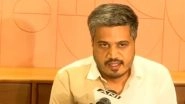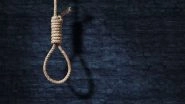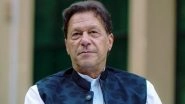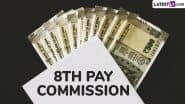Caracas, Jan 23 (AFP) Venezuela opposition leader Juan Guaido declared himself acting president a year ago in a bid to oust Nicolas Maduro, winning the backing of more than 50 countries.
As he meets with political leaders in Europe this week, here is an overview of the power struggle. - 'Acting president' -
Guaido -- head of the opposition-dominated National Assembly -- declares himself acting president at a massive rally in Caracas on January 23.
It comes two weeks after Maduro started a second term following elections boycotted by the opposition and internationally dismissed as fraudulent. Venezuela is in economic collapse.
Guaido is recognized by the United States, Canada, European Union countries and major Latin American powers.
But China, Cuba and Russia remain behind Maduro, as does the military.
On January 28, Washington orders sanctions on Venezuela's state oil company PDVSA and hands control of its US bank accounts to Guaido. - Maduro closes borders -
Trucks loaded with international supplies for Venezuela arrive on the Colombian side of the Tienditas border bridge on February 7.
But Venezuelan troops prevent them from entering and Maduro slams "fake humanitarian aid" as a ploy for a US "invasion." He orders the closure of the borders with Brazil and Colombia, and sea and air links with Curacao in the Caribbean.
Guaido attends on February 22 a Venezuelan aid concert inside Colombia organized by Richard Branson.
The next day, clashes break out at the border with Brazil when the Venezuelan military stops aid from entering. Four people are killed.
Guaido goes on to visit several countries in the region, received like a head of state, before returning to Caracas. - Uprising fails -
On April 30 Guaido releases a video of himself with a small group of soldiers, for the first time claiming to have support from inside the military and calling for others to join them.
Thousands of supporters gather nearby and riots erupt in other cities. The government denounces an "attempted military coup." But the insurrection quickly peters out and 25 rebel soldiers seek refuge in the Brazilian embassy. On May 2, the army publicly pledges loyalty to Maduro.
At least five people are killed in days of unrest. - Talks called off -
Delegations from the rival sides meet in Oslo in late May for talks under Norwegian auspices, pledging to continue dialogue.
On June 8 Maduro orders the reopening of the Colombia border where aid has amassed. Thousands of Venezuelans rush to collect food and medicine.
On July 5 a UN Human Rights Council report alleges that nearly 7,000 people had been killed in 18 months of security force operations in the country.
US President Donald Trump on August 6 freezes Venezuelan government assets in the United States. In response, Maduro cancels talks with Guaido's team.
On November 16, about 5,000 Guaido supporters demonstrate against Maduro in the opposition's biggest rally since May, but with turnout far lower than expected. - Guaido reappointed -
Opposition lawmakers reappoint Guaido as speaker on January 5 in a session held at a newspaper office after police block him from entering the National Assembly.
A rival parliamentarian claims the position from inside the legislature and is acknowledged by Maduro.
Guaido is sworn in two days later, having to force his way past the National Guard to reach the speaker's seat.
On January 19 he meets US Secretary of State Mike Pompeo in Colombia before heading to Europe where he met British Prime Minister Boris Johnson and is also to hold talks with EU foreign policy chief Josep Borrell before attending the World Economic Forum in Davos.
(The above story is verified and authored by Press Trust of India (PTI) staff. PTI, India’s premier news agency, employs more than 400 journalists and 500 stringers to cover almost every district and small town in India.. The views appearing in the above post do not reflect the opinions of LatestLY)













 Quickly
Quickly


